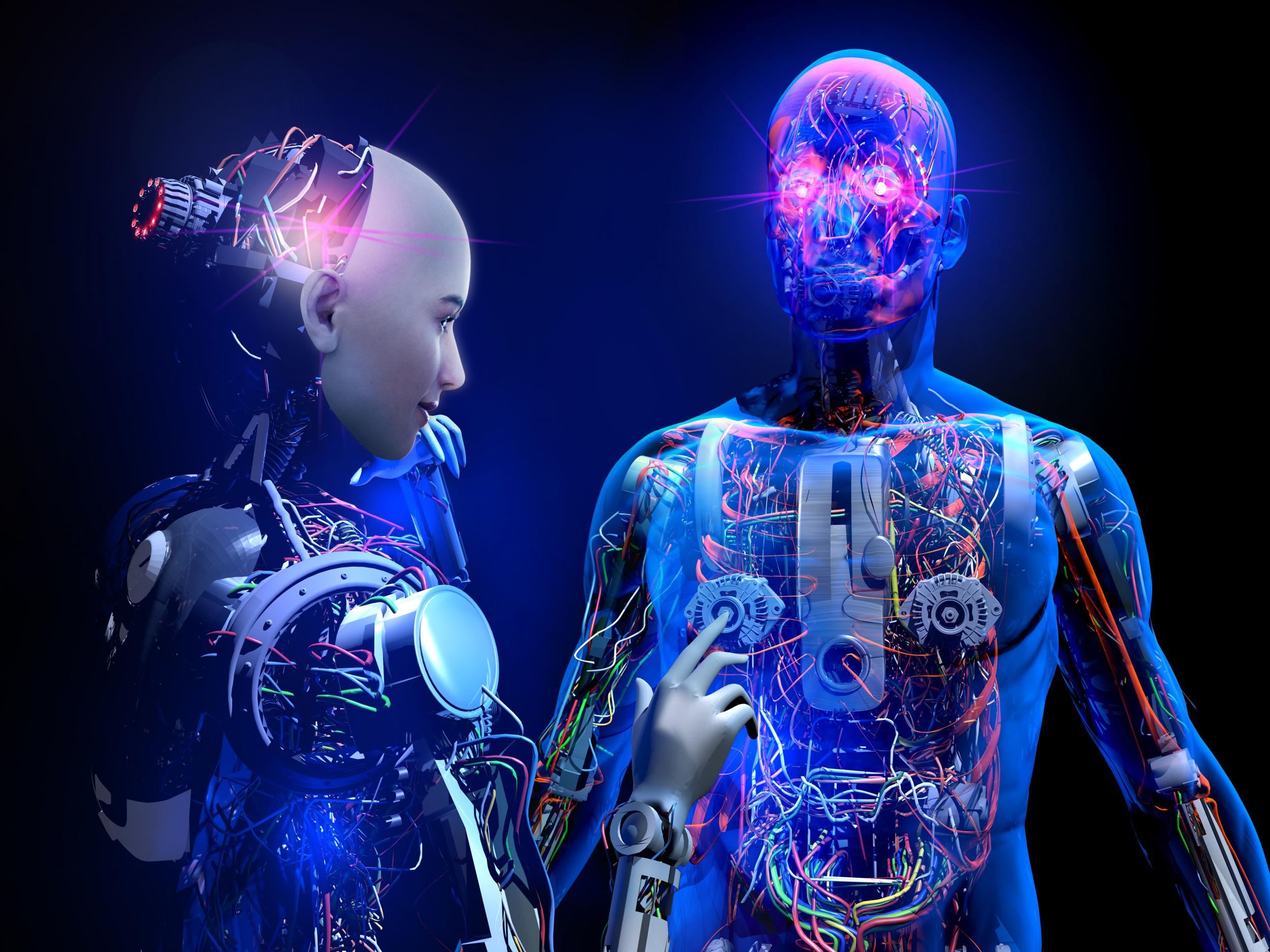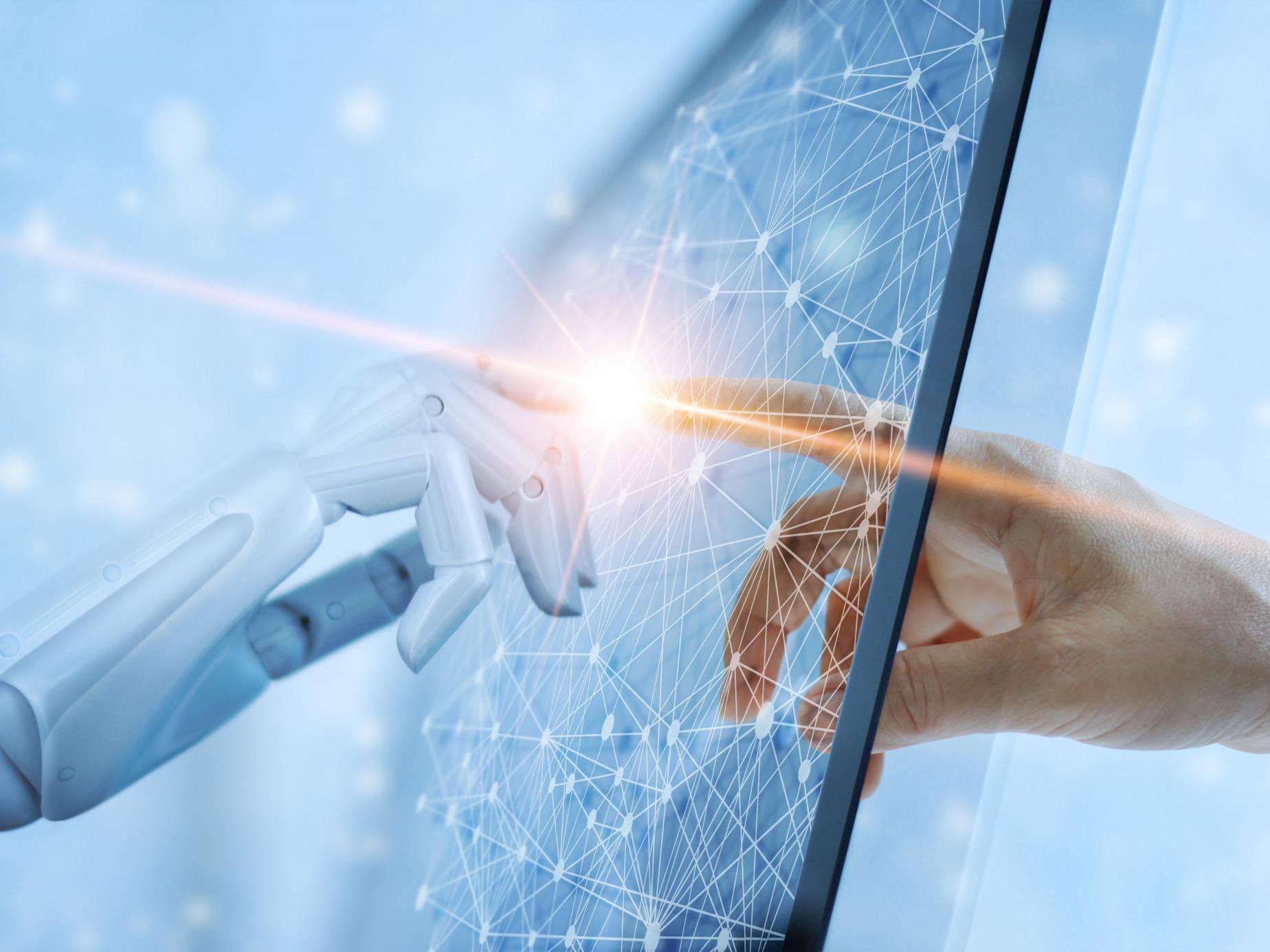Out of this world: Should sex technology be launched into space?
As our ever-evolving relationship with technology takes a surprisingly sexual turn, Simon Dube and Dave Anctil ask if robots can, and should, be used to help astronauts satisfy basic needs

Your support helps us to tell the story
From reproductive rights to climate change to Big Tech, The Independent is on the ground when the story is developing. Whether it's investigating the financials of Elon Musk's pro-Trump PAC or producing our latest documentary, 'The A Word', which shines a light on the American women fighting for reproductive rights, we know how important it is to parse out the facts from the messaging.
At such a critical moment in US history, we need reporters on the ground. Your donation allows us to keep sending journalists to speak to both sides of the story.
The Independent is trusted by Americans across the entire political spectrum. And unlike many other quality news outlets, we choose not to lock Americans out of our reporting and analysis with paywalls. We believe quality journalism should be available to everyone, paid for by those who can afford it.
Your support makes all the difference.The 2018 movie A.I. Rising explores how machines could fulfil desires and support humans during space travel. Lo and behold, it might contain the solution to problems related to space exploration. Astronauts, despite their rigorous training, remain humans with needs. For space exploration and colonisation to succeed, we need to overcome taboos, consider human needs and desires and provide concrete, realistic solutions based on science rather than conventional morality.
Can humans thrive for prolonged periods of time in small groups and in closed, isolated environments? Can humans contend with limited possibilities of relationships, intimacy and sexuality? Sex tech might have the answer. As researchers exploring human-machine erotic interactions, we are interested in their implications and potential applications for human wellbeing – even beyond our home planet.
Space exploration and colonisation is one of humanity’s greatest endeavours, but it comes with challenges. One of them is to make the space journey human-compatible, that is, physically and psychologically viable. Given that intimacy and sexuality are basic needs, they become central issues for human-space compatibility.
How will humans have sex in space? Can we propagate the species beyond Earth? What will intimate relationships look like aboard spaceships and settlements? As of now, Nasa and other space agencies have denied that any sexual activity has ever occurred during a space mission. Either sex in space hasn’t happened, or no one is talking about it. Nonetheless, imminent prolonged human missions to the moon and Mars raise concerns regarding the future of intimacy and sexuality in space.
One important concern is that space exploration and colonisation will limit people’s opportunities for relationships, intimacy and sexuality for long periods of time. In the very near future, human missions will only include small crews and settlements. Fewer people mean fewer opportunities for intimacy – making it difficult to find partners to connect with and potentially increasing tension between crew members. For instance, it might be difficult to find partners that fit our personality, preferences and sexual orientation. And when a relationship ends, people are stuck on a ship with an ex-partner – possibly impairing a crew’s mood and the teamwork necessary to survive in dangerous environments.
While some people might be able to withstand a policy of total abstinence, it might be detrimental to the physical and mental health of others – especially as larger groups venture into space. Yet Nasa seems afraid of tackling issues of intimacy and sexuality in space. In 2008, Bill Jeffs, spokesperson for Nasa’s Johnson Space Center in Houston, said: “We don’t study sexuality in space, and we don’t have any studies ongoing with that. If that’s your specific topic, there’s nothing to discuss.”

Given what we know about human sexuality, this position seems irresponsible. It prevents research from examining basic questions about sexual health and wellbeing in space. For instance, how do we deal with hygiene and the messiness of human sex in zero gravity? How will we maintain a crew’s psychological wellbeing if people must endure long periods lacking in erotic stimulation and affection? Is imposed abstinence a reasonable solution, based on empirical evidence?
One solution could be to make erotic technologies available to crews and settlers in space. This could include sex toys – any object used for sexual enhancement or stimulation – which could be used for sexual pleasure and gratification. But sex toys do not address the social dimensions of human erotic needs. This is where erobots come in.
Erobotics could enable us to approach questions of intimacy and sexuality in space from scientific, relational and technological perspectives
The term erobots characterises all virtual, embodied and augmented artificial erotic agents and the technologies that produce them. Examples include sex robots, erotic chatbots and virtual or augmented partners. Erobotics is the emerging transdisciplinary research studying human-erobots interactions and related phenomena. Unlike previous technologies, erobots offer the opportunity of intimate relations with artificial agents tailored to the needs of their users. Erobotic technologies polarise public and academic discourses: some denounce them as promoting harmful norms, while others defend their potential benefits and health, education and research applications.
Erobots represent a practical solution to tackle the inhuman conditions of space exploration and colonisation. Moreover, erobotics could enable us to approach questions of intimacy and sexuality in space from scientific, relational and technological perspectives. Erobots could provide companionship and sexual pleasure to crew members and settlers. Beyond the capabilities of sex toys, erobots can incorporate social dimensions into erotic experiences. They could help with loneliness and the inevitable anxieties borne out of solitude. They could act as surrogate romantic partners, provide sexual outlets and reduce risks associated with human sex.
Erobots could also provide intimacy and emotional support. And finally, erobots’ sensors and interactive capabilities could help monitor astronauts’ physiological and psychological health – acting as a complement to daily medical exams. Erobots can take many forms and be made of light material. They can manifest through virtual or augmented reality and be combined with sex toys to provide interactive and immersive erotic experiences. The same technology could also be employed to enact erotic experiences with loved ones back on Earth.
To harness erotic technology’s potential for human space missions, we must build collaborations between academia, governmental space programs and the private sector. Erobotics can contribute to space research programs. As a field grounded in sexuality and technology positive frameworks, it recognises the importance of intimacy and sexuality in human life and promotes the development of technology geared towards health and wellbeing. And ultimately, we must shed our taboos regarding technology and sexuality as we journey to the final frontier.
Simon Dube is a PhD candidate in psychology at Concordia University and Dave Anctil is a researcher at Universite Laval. This article was first seen on The Conversation
Join our commenting forum
Join thought-provoking conversations, follow other Independent readers and see their replies
Comments